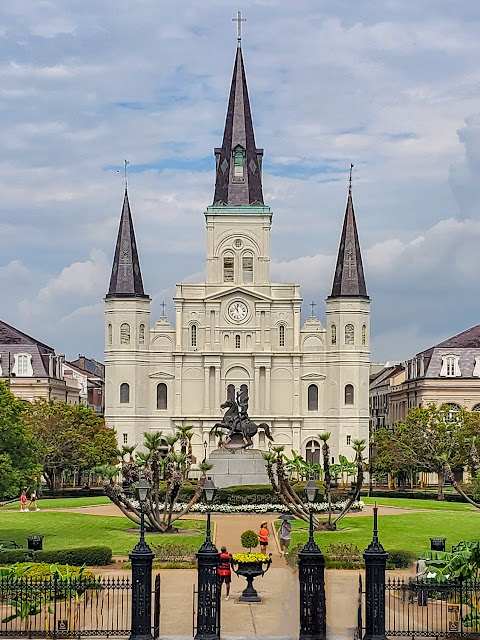7 More Ways To Save Money On Travel Expenses
Lately, we don't travel as often as we would like since we are expecting our third child in the next few months.
Still, I've learned a lot about how to save money on travel in the last several years. We've been all over the US from Atlanta to Hawaii!
We have been able to afford travel with some careful planning in addition to utilizing our credit card rewards points.
I make it a game to see how much we can save on these trips without skimping on the fun, and I'm here to share my tips with you.
My first post got so long as I wrote it that I had to break it up into two parts. So, when you're done reading this check out part one:
6 Ways To Save Money On Travel Expenses
In the meantime, I hope you find these ideas useful. Share your thoughts in the comments at the end!
1. CALCULATE THE COST OF MULTIPLE OPTIONS
• Fly or Roadtrip?
It's not uncommon for me to calculate the cost of gas and compare it to the flight prices I can find. And one is not always cheaper than the other. Some drives are so long, you'll have to break up the trip with a hotel stay which defeats the purpose of driving to save money. Sometimes, it's still cheaper to go that route. Be sure to check every time as the result may surprise you.
• Budget airline or all-inclusive flights?
Often, even when you have to pay extra for a carry on bag with Frontier, it's still cheaper than flying with a non-budget airline like Delta. Be sure to compare the prices of each before booking. Some other budget airlines include. Ryanair, Easyjet, and Southwest.
The nice part about flying with cheaper airlines is that you only pay for what you need. The prices of snacks may seem ridiculous on a Spirit flight but with Jetblue, you've paid for it whether you wanted it or not.
It's true that sometimes budget airlines aren't worth the lower price if you have an overnight layover. But don't assume American Airlines or Delta is always better.
• Hotel or property rental?
Several years ago, Airbnb and Vrbo were cheaper than a hotel almost anywhere in the US.
That's simply not the case anymore. So, be sure to check as many options as you can for a place to sleep on your vacation.
For example, an Airbnb in San Francisco might save you a little money but it will most likely be farther from downtown SF and attractions in the Bay area.
On the other hand, a home rental in New York City will most likely be cheaper and more comfortable than a hotel. Again, that all depends on the city and the location within the city.
And your stay doesn't necessarily have to be close to the fun stuff if you have a cheap and fast way to get around. Public transit is so efficient in Chicago that it makes sense to get a cheaper hotel and take the subway to Willis Tower, The Art Institute, etc.
• Long or short trip?
A weekend away is not always cheaper per day compared to a longer trip. It all depends on how you plan to eat, whether you can stay with friends, and if you'll need a rental car or not. But I'll get to those details later.
You might find a great deal on round-trip flights, but that often means you have to book a trip for about 8 days give or take.
But that might be more worthwhile if you get an especially low price on your flight and if you can cut spending in other aspects.
On the other hand, paying more for plane tickets and just a few days means less money going to an Airbnb and food. That's less of a problem on a week+ long trip if you consider my next three tips.
2. STAY WITH FRIENDS AND FAMILY
When someone offers you an open invitation to stay at their home, take them up on it.
How many of us have friends or relatives who say, "Come visit us and you can stay at our house," but we assume they don't really mean it? Or we don't want to impose?
Don't you mean it when you make an offer like that?
It may feel awkward, especially if you're not close to this person, but this can be an opportunity to strengthen a relationship as you spend time together.
Not only does boarding with an acquaintance save money; it can give you a more unique travel experience.
I love staying with locals because they usually know the best non-touristy things to do and the most fun restaurants in their area.
Besides, maybe you can return the favor.
3. GET FOOD FROM THE GROCERY STORE
The cost of food adds up so quickly when you're on vacation. This is especially true if you're out sight-seeing and then you're suddenly hungry and want food right away.
It's easy to eat out for most, if not all, your meals when you're away from home. Part of that is due to the attitude of being on vacation and wanting to treat yourself.
Of course, we eat out when we travel, because food is a huge part of the experience. We discovered one of our all time favorite restaurants outside Atlanta. And half the reason we went to New Orleans was for the food.
That doesn't mean it's necessary or worthwhile to eat out for breakfast, lunch, and dinner everyday.
One of the first things we do when we arrive to our destination is go to the grocery store.
We often buy cereal, milk, sandwich fixings, and fruit. It's not luxurious but it's part of the adventure.
Sometimes, I'll even bring a few snacks from home as well as a toddler size bowl, a spoon, a couple sandwich bags, and a tiny bottle of dishsoap.
I just use the same bowl for breakfast everyday morning and resuse the sandwich bags if I need to.
4. USE PUBLIC TRANSIT
Taking the bus or subway is not only cheaper than rideshares; it also enables you to immerse yourself in whichever place your visiting. It might sometimes take longer to get from place to place but that's not always the case.
When it comes to price, rideshares don't save you enough time compared to public transit to be worth the extra cost.
It might make more sense to get a rental car depending on where you are going, but consider the cost of parking at hotels and attractions when deciding what you'll need for getting around town on your vacation.
Getting a rental car in Atlanta is ideal, whereas San Francisco, New York City, and Chicago are best explored with public transit.
5. MAKE A PLAN FOR EATING OUT
Like I said previously, we do eat out on vacation. That's a huge point of the experience afterall, but we don't eat out for every meal.
Most of the time, I try to plan for just one restaurant meal per day on vacation unless we are somewhere with amazing food like New Orleans.
Related Post:
A Self-Guided New Orleans Food Crawl
No matter how often you want to eat out, it's helpful to research and save food options before you travel. This not only saves you from impulsively choosing a tourist trap with overpriced food, but it saves you time on your vacation as well.
Wherever we plan to go, I always research restaurants beforehand and save them in a list on Google Maps. I make sure to look over menus and plenty of reviews to determine if it's a place we would truly enjoy. Occasionally, I'll leave a note to remind myself which dishes I'm curious to try.
I don't like to create specific travel itineraries, but I will save several restaurants in the areas we will likely be exploring. This gives us several options without having to do a full search for food when we are already hungry and grumpy.
This kind of planning also gives me a general idea of how much we can expect to pay for food so I can set that money aside ahead of time.
In the meantime, I hope you find these ideas useful. Share your thoughts in the comments at the end!
1. CALCULATE THE COST OF MULTIPLE OPTIONS
• Fly or Roadtrip?
It's not uncommon for me to calculate the cost of gas and compare it to the flight prices I can find. And one is not always cheaper than the other. Some drives are so long, you'll have to break up the trip with a hotel stay which defeats the purpose of driving to save money. Sometimes, it's still cheaper to go that route. Be sure to check every time as the result may surprise you.
• Budget airline or all-inclusive flights?
Often, even when you have to pay extra for a carry on bag with Frontier, it's still cheaper than flying with a non-budget airline like Delta. Be sure to compare the prices of each before booking. Some other budget airlines include. Ryanair, Easyjet, and Southwest.
The nice part about flying with cheaper airlines is that you only pay for what you need. The prices of snacks may seem ridiculous on a Spirit flight but with Jetblue, you've paid for it whether you wanted it or not.
It's true that sometimes budget airlines aren't worth the lower price if you have an overnight layover. But don't assume American Airlines or Delta is always better.
• Hotel or property rental?
Several years ago, Airbnb and Vrbo were cheaper than a hotel almost anywhere in the US.
That's simply not the case anymore. So, be sure to check as many options as you can for a place to sleep on your vacation.
For example, an Airbnb in San Francisco might save you a little money but it will most likely be farther from downtown SF and attractions in the Bay area.
On the other hand, a home rental in New York City will most likely be cheaper and more comfortable than a hotel. Again, that all depends on the city and the location within the city.
And your stay doesn't necessarily have to be close to the fun stuff if you have a cheap and fast way to get around. Public transit is so efficient in Chicago that it makes sense to get a cheaper hotel and take the subway to Willis Tower, The Art Institute, etc.
• Long or short trip?
A weekend away is not always cheaper per day compared to a longer trip. It all depends on how you plan to eat, whether you can stay with friends, and if you'll need a rental car or not. But I'll get to those details later.
You might find a great deal on round-trip flights, but that often means you have to book a trip for about 8 days give or take.
But that might be more worthwhile if you get an especially low price on your flight and if you can cut spending in other aspects.
On the other hand, paying more for plane tickets and just a few days means less money going to an Airbnb and food. That's less of a problem on a week+ long trip if you consider my next three tips.
2. STAY WITH FRIENDS AND FAMILY
When someone offers you an open invitation to stay at their home, take them up on it.
How many of us have friends or relatives who say, "Come visit us and you can stay at our house," but we assume they don't really mean it? Or we don't want to impose?
Don't you mean it when you make an offer like that?
It may feel awkward, especially if you're not close to this person, but this can be an opportunity to strengthen a relationship as you spend time together.
Not only does boarding with an acquaintance save money; it can give you a more unique travel experience.
I love staying with locals because they usually know the best non-touristy things to do and the most fun restaurants in their area.
Besides, maybe you can return the favor.
3. GET FOOD FROM THE GROCERY STORE
The cost of food adds up so quickly when you're on vacation. This is especially true if you're out sight-seeing and then you're suddenly hungry and want food right away.
It's easy to eat out for most, if not all, your meals when you're away from home. Part of that is due to the attitude of being on vacation and wanting to treat yourself.
Of course, we eat out when we travel, because food is a huge part of the experience. We discovered one of our all time favorite restaurants outside Atlanta. And half the reason we went to New Orleans was for the food.
That doesn't mean it's necessary or worthwhile to eat out for breakfast, lunch, and dinner everyday.
One of the first things we do when we arrive to our destination is go to the grocery store.
We often buy cereal, milk, sandwich fixings, and fruit. It's not luxurious but it's part of the adventure.
Sometimes, I'll even bring a few snacks from home as well as a toddler size bowl, a spoon, a couple sandwich bags, and a tiny bottle of dishsoap.
I just use the same bowl for breakfast everyday morning and resuse the sandwich bags if I need to.
4. USE PUBLIC TRANSIT
Taking the bus or subway is not only cheaper than rideshares; it also enables you to immerse yourself in whichever place your visiting. It might sometimes take longer to get from place to place but that's not always the case.
When it comes to price, rideshares don't save you enough time compared to public transit to be worth the extra cost.
It might make more sense to get a rental car depending on where you are going, but consider the cost of parking at hotels and attractions when deciding what you'll need for getting around town on your vacation.
Getting a rental car in Atlanta is ideal, whereas San Francisco, New York City, and Chicago are best explored with public transit.
5. MAKE A PLAN FOR EATING OUT
Like I said previously, we do eat out on vacation. That's a huge point of the experience afterall, but we don't eat out for every meal.
Most of the time, I try to plan for just one restaurant meal per day on vacation unless we are somewhere with amazing food like New Orleans.
Related Post:
A Self-Guided New Orleans Food Crawl
No matter how often you want to eat out, it's helpful to research and save food options before you travel. This not only saves you from impulsively choosing a tourist trap with overpriced food, but it saves you time on your vacation as well.
Wherever we plan to go, I always research restaurants beforehand and save them in a list on Google Maps. I make sure to look over menus and plenty of reviews to determine if it's a place we would truly enjoy. Occasionally, I'll leave a note to remind myself which dishes I'm curious to try.
I don't like to create specific travel itineraries, but I will save several restaurants in the areas we will likely be exploring. This gives us several options without having to do a full search for food when we are already hungry and grumpy.
This kind of planning also gives me a general idea of how much we can expect to pay for food so I can set that money aside ahead of time.
6. SKIP THE SOUVENIRS
It's one thing if you go somewhere specifically to shop like the fashion district in New York.
On the other hand, when traveling we are susceptible to tourist traps as we get caught up in the excitement of exploring a new place.
Souvenir shops and booths are strategically placed where we will be easily swept into buying things we never actually wanted until we see them.
These trinkets are often cheaply made in China and share no story with your travel destination.
Do yourself a favor: forego souvenirs altogether and preserve your memories with photos and journal entries instead. A detailed description of your explorations and the feelings that came to you is unique and therefore priceless.
You may feel pressure to buy something for someone back home, but this is your experience and there is no gift that could convey your good times to someone who wasn't there.
If you really do want to shop on your trip, plan for it. Set a budget of how much you are willing to spend on souvenirs and factor that into your overall travel budget.
Alternatively, you could choose just one thing you would like to buy if you happen to stumble upon it.
For us, that's a Christmas tree ornament. We prefer something handmade that expresses the local culture, but we don't go out of our way to find one. If, by chance, we discover an ornament we genuinely like, sure we will get it but there's no need to have memorabilia from every single vacation.
7. KNOW THAT ALL-INCLUSIVE PACKAGES ARE NOT ALWAYS CHEAPER
Buying in bulk can be useful for grocery shopping but this often doesn't apply to vacations.
In fact, when you break it down it's rarely cost effective to pay for a travel package if you want to experience the local culture.
You pay for convenience, for someone else to do the careful planning for you and that's likely someone who doesn't know your tastes.
Before you book, take a close look at what all-inclusive really means. You will likely spend most or all of your time at a resort. The food is unlikely to reflect local cuisine, with mediocre entertainment, and excursions will possibly involve being herded around with other tourists.
You may also want to consider possible hidden fees, and you might end up paying for services you won't end up using.
The same concept applies to deals like CityPASS. It's common to overestimate how much time it will actually take to see all the attractions included in these package deals.
Sure, it might be cheaper to bundle these experiences, but you may not have enough time to fully enjoy each one without rushing through everything to "get your money's worth."
It's best to research which activities you specifically want to do in a city and calculate the price of all the tickets separately before paying for booking with CityPASS.
We didn't get a CityPASS in Chicago because we only wanted to see two attractions out of the five included. However, we would likely pay for it on a family trip to San Diego.
Always check the listings on the websites specific to each attraction and age group as well before you settle for a CityPASS so you know what kind of a deal you are getting.
Maybe you feel it's worth the extra cost to avoid doing the research yourself, but you may be disappointed with some of the details once you are on vacation.
Consider checking prices and weighing the pros and cons of planning your own trip from scratch. Then, and only then should you schedule an all-inclusive vacation so you can really know if it's saving you money.
Take your time to research and be patient as you plan. With practice, planning frugal (not cheap) vacations becomes more fun than stressful.
Was this post helpful? Do you have any suggestions not included here?
Let me know in the comments!











Comments
Post a Comment